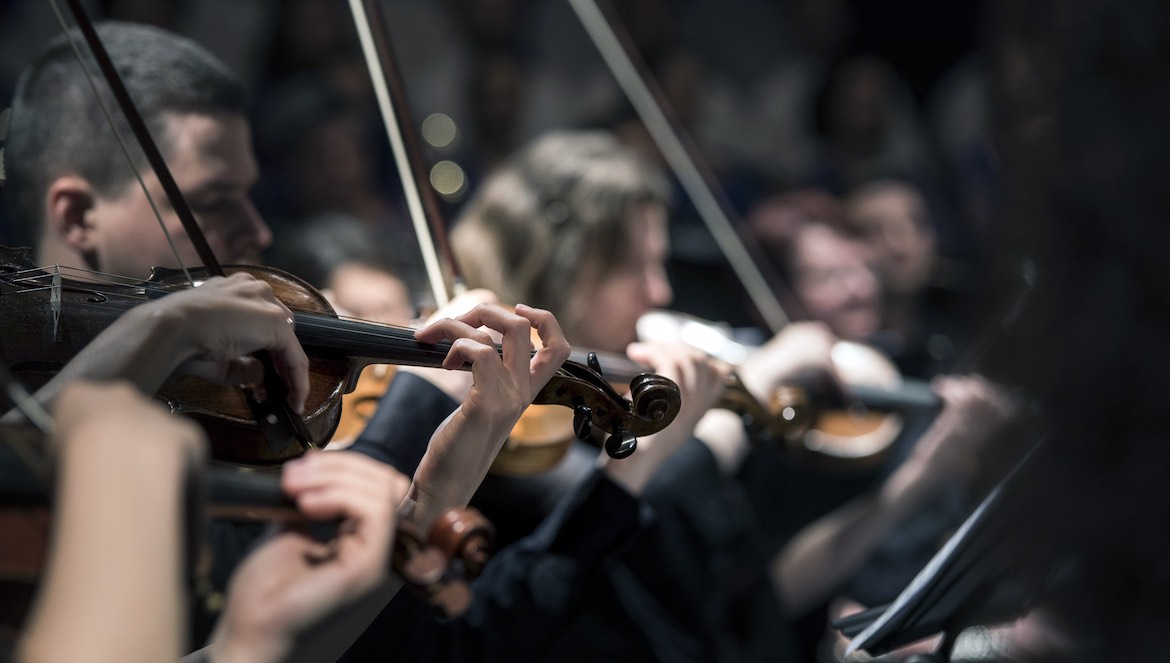Listeners find meaning, not just escape, in classical music

M. Johnson
The week that Russia invaded Ukraine, classical music organizations around the country discussed how we were planning to respond.
One orchestra considered canceling an upcoming performance of Mussorgsky’s piece “Pictures at an Exhibition” because it ends with a movement titled “The Great Gate at Kiev.” The Metropolitan Opera suspended its relationship with star soprano and outspoken Vladimir Putin sympathizer Anna Netrebko.
I and many other classical radio hosts and programmers participate in an online community where we were also having robust discussions about what our stations might do.
For example, in response to a call from the European Broadcasting Union, many classical stations in Europe and the U.S. aired the “Ode to Joy” from Beethoven’s Ninth Symphony March 10 in a show of solidarity with our Ukrainian Public Broadcasting counterparts.
Some music programmers said they’re putting recordings by Netrebko and other Putin-aligned people, such as conductor Valery Gergiev, on hold for the time being. Others noted that they were trying to include more music by Ukrainian composers and musicians in their broadcast rotations.
And then one music director commented, “We pretend that playing pretty music on the radio has community impact, but in reality most stations have reduced their ‘service’ to aural wallpaper designed to keep people from tuning out during the next fundraising drive.”
I confess that my jaw hit the floor when I read that comment. I couldn’t gather my thoughts well enough in the moment to respond, so I’m doing it in this essay instead.
I’m heartily insulted at the insinuation that I’m merely plastering the airwaves and the streams with aural wallpaper and that my listeners don’t want anything but pretty banalities.
Look, sometimes I like to lose myself in a Beethoven symphony and focus only on the music and not think about anything else happening in the world. I frequently hear from listeners who thank us for being available to them when the news gets too depressing and too overwhelming. I’m glad we can be a port in the storm.
But losing myself in a piece of music or listening to music when the news gets overwhelming doesn’t mean that the music is just background noise. Based on the conversations I’ve had with listeners over the years, I have a hard time believing that our listeners think of our service simply as aural wallpaper, either.
Every week, our classical music request program is populated with pieces that listeners choose because they’re meaningful. Following the death of her husband, one listener requested Pachelbel’s Canon because it was “their” piece. A pair of listeners asks for alphorn music to share their love of the instrument and show listeners that it’s not just the “Ricola” horn. Another person surprised her hospitalized husband with a request for “Sing, Sing, Sing,” and their son reported that his dad turned the volume on his radio up so loud that the ICU nurses had to ask him to turn it down.
I’ve also heard from people on all sides of discussions about whether specific artists should be removed from broadcast rotations (“canceled,” if you must) based on their actions. Do we continue to air music that Stephen Foster composed for blackface minstrel shows even if they’re songs that people know and love? If we stop broadcasting performances conducted by a well-known alleged sexual predator, does that cause undue injury to the musicians who played in the ensembles that person conducted? Does knowing that Anna Netrebko said she wished she could be Vladimir Putin’s lover affect how a person hears music she performs?
Our listeners have made impassioned pleas on all sides of these and many other issues. No matter where they fell in these discussions, or what side they were on, it certainly wasn’t on the side of classical music being something that’s happening in the background.
The music matters. People care about what they hear, and it has meaning.
Aural wallpaper? Not on my station.
Amanda Sewell, Ph.D., is music director at Interlochen Public Radio in Interlochen, Mich. Her first book, Wendy Carlos: A Biography, was published by Oxford University Press in 2020.








I liked the discussing of how to handle Russian music nowadays given the war in Ukraine…. And I get the author’s passion for and embrace of, classical music. Me, too! But, at the same time, there’s nothing wrong with “aural wallpaper” or however any listeners use our classical service or view it or characterize it. Consider *any* kind of listening a compliment! I have a friend who is the most fanatical, absorbed person about classical music I have ever met outside classical radio, maybe even inside, too. Thousands of CDs, even more LPs, a fabulous home sound system. For months I itched to introduce him to likely the best performance of a beloved 20th century composer’s self-described favorite work. Finally, I had the opportunity and the result was… little more than a blank look. What a let down. No reveling in sharing that one. Just as people have different music sensibilities and tastes, their level of enjoyment or use may differ as well. We celebrate what we can, and carry on.